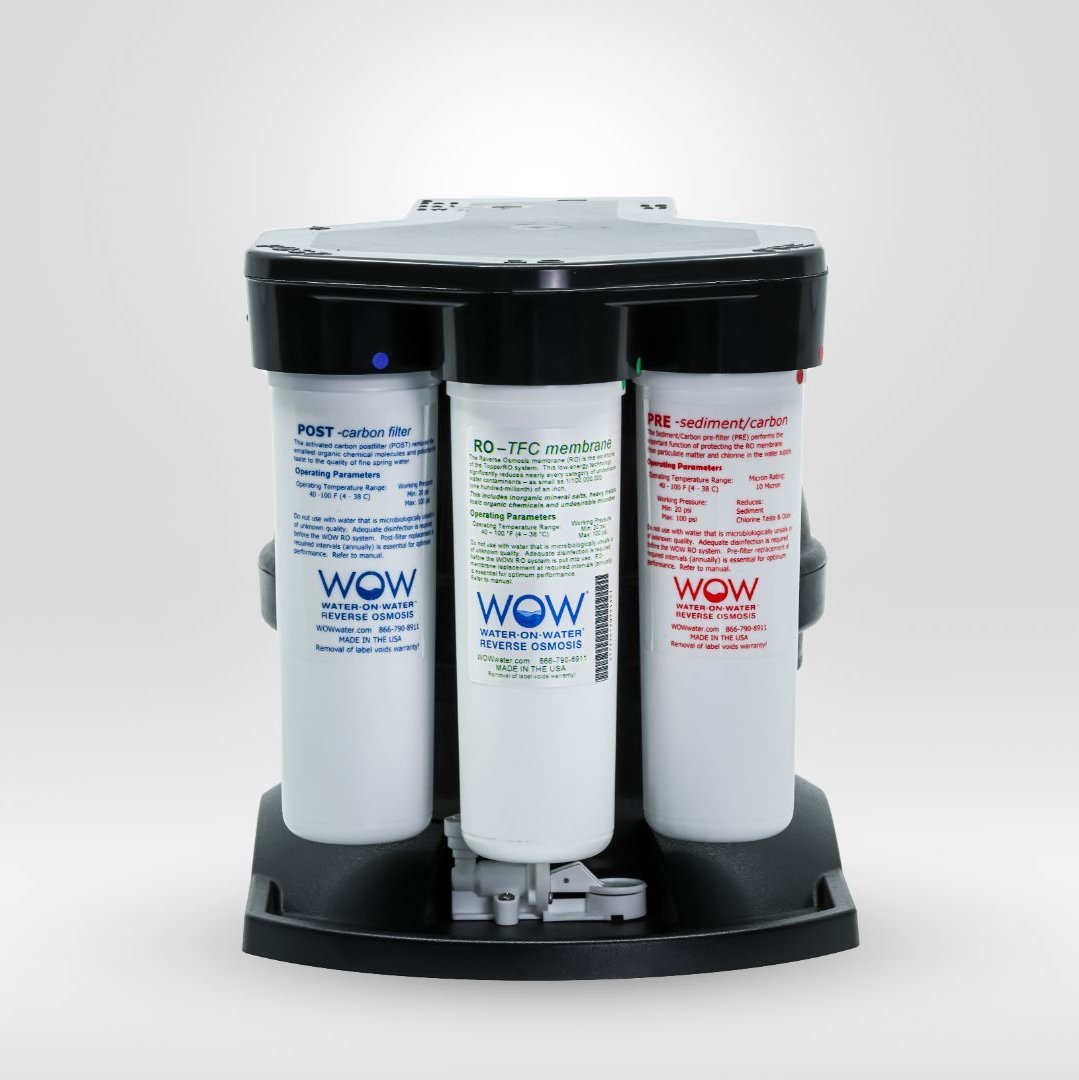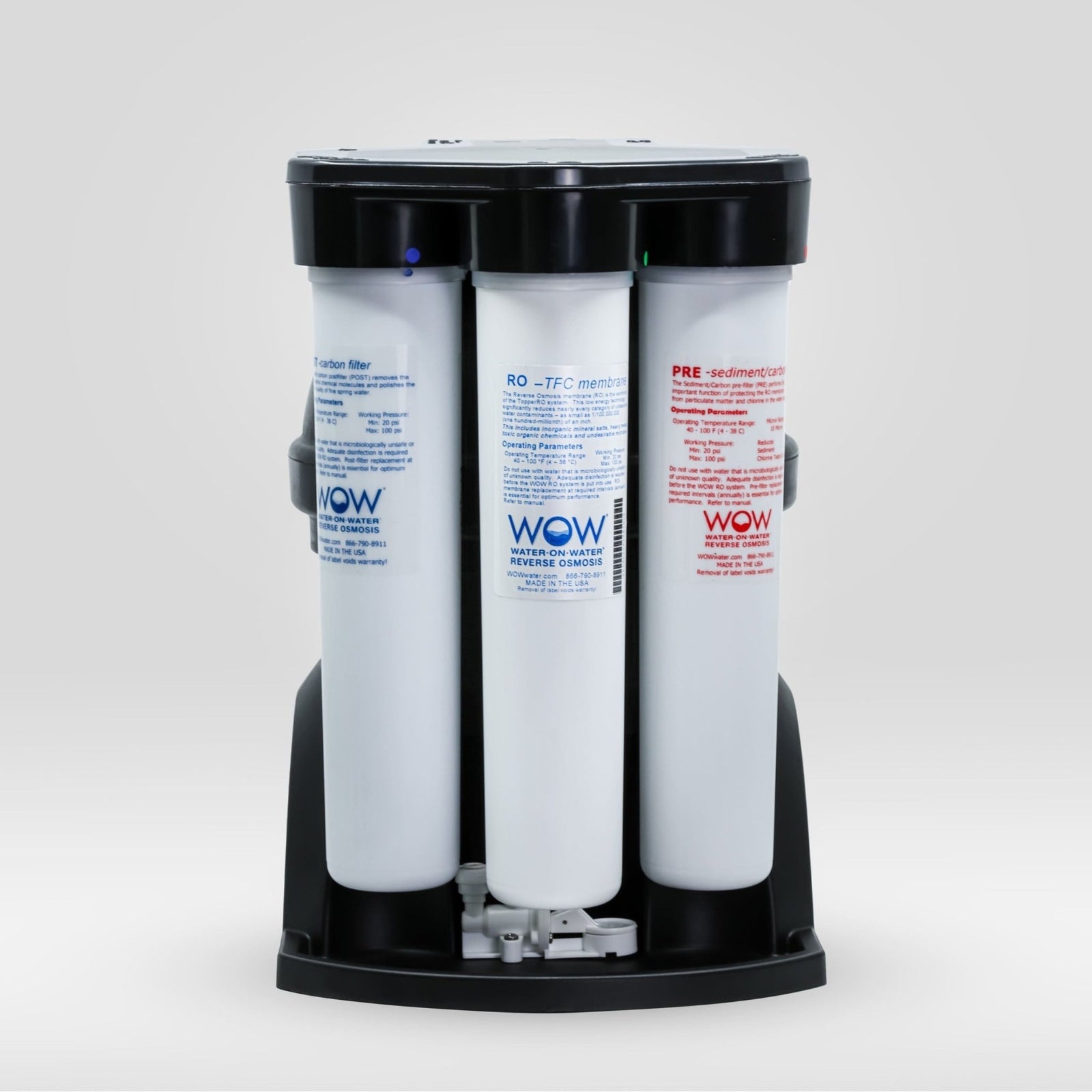PFAS, or poly- and perfluoroalkyl substances, are a group of chemicals commonly found in industrial and consumer products. These substances are notorious for their persistence in the environment and their potentially harmful effects on human health. In this article, we delve deeper into how PFAS impact health, specifically regarding PFAS in tap water and the role of a home water filter .
What are PFAS?
PFAS are synthetic chemicals known for their water- and grease-repellent properties. They are often used in products such as:
- Teflon and other non-stick coatings
- Water-repellent clothing
- Cleaning products
- Food packaging
Because they linger so well in the environment, PFAS are often difficult to avoid and can accumulate in the body.
How PFAS ends up in our water
The presence of PFAS in tap water is a growing problem. These substances can enter the water through:
- Industrial discharge of wastewater
- Use of PFAS-containing products in agriculture
- Fire-fighting foam containing PFAS
Health risks of PFAS
Research has shown that exposure to PFAS can lead to various health problems. Here are some of the most concerning risks:
Cancer
There are indications that some PFAS compounds may increase the risk of aggressive forms of cancer, such as kidney and testicular cancer. This has led to concerns about the long-term effectiveness of PFAS-containing products.
Hormonal disturbances
PFAS can also disrupt hormonal balance. This can lead to reproductive problems, including fertility issues and unwanted pregnancies. Research shows that PFAS can influence the effects of hormones such as estrogen.

Immune system and other conditions
Besides cancer and hormonal disruptions, PFAS also appears to weaken the immune system. This can lead to increased susceptibility to infections and other health problems, such as elevated cholesterol levels and liver disease.
PFAS in tap water: What can you do?
It's important to be aware of the potential risks of PFAS in tap water. Here are some steps you can take to protect your health:
Use a water filter at home
A home water filter can be an effective way to remove PFAS from your drinking water. Several types of water filters are available, including activated carbon filters and reverse osmosis systems. It's important to choose a filter specifically designed to reduce PFAS.
Be careful with products containing PFAS
It's advisable to minimize the use of products containing PFAS. Read labels carefully and choose alternatives that don't contain harmful chemicals. This can help reduce your exposure to PFAS.
Stay informed
Inform yourself about the presence of PFAS in your area. Local health authorities often provide information about tap water quality. Monitor joint safety guidelines and research for the latest information about PFAS in your area.
The future of PFAS regulation
Increased concern about the effects of PFAS has led to increased attention from governments and regulators. Here are some developments to follow:
- Stricter regulations around PFAS products
- Research into harmful effects and harmful levels
- Policy to remove PFAS from production
The importance of awareness
It's crucial that people are aware of the risks associated with PFAS. Minimizing exposure and choosing a home water filter can have a significant impact on your health. By making lifestyle changes and staying well-informed, you can reduce the risk of PFAS-sensitive health effects.
Take control of your health!
As you explore the landscape of PFAS and its potential health risks, it becomes clear that this topic shouldn't be taken lightly. By choosing conscious products and technologies like water filters, you're making a conscious choice for your health. Be proactive, stay informed, and take control of the quality of your drinking water and, ultimately, your health. Your well-being is worth it!








